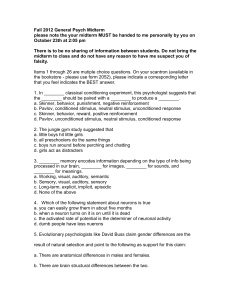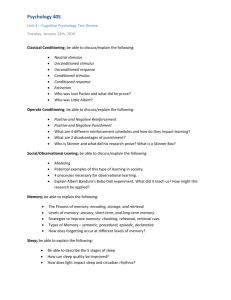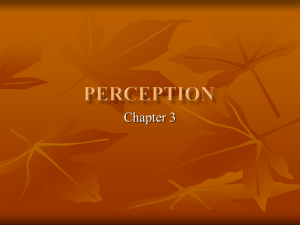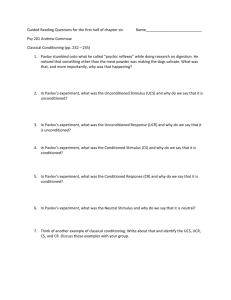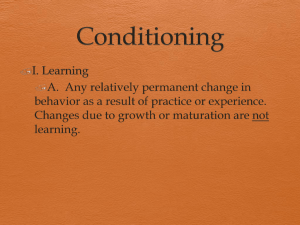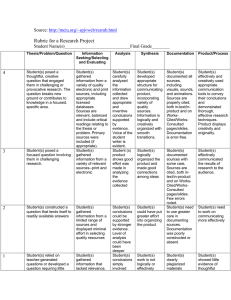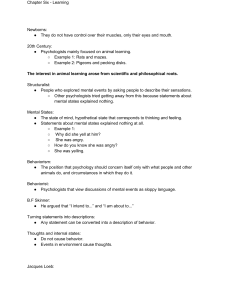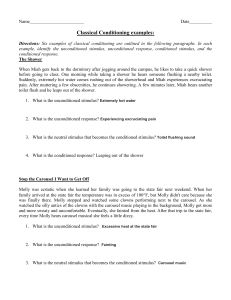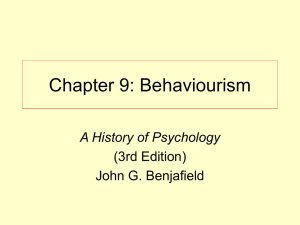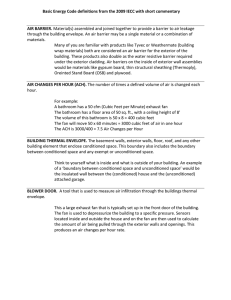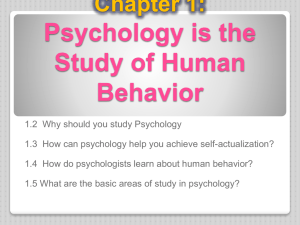Human Sciences-limitations - TOK
advertisement
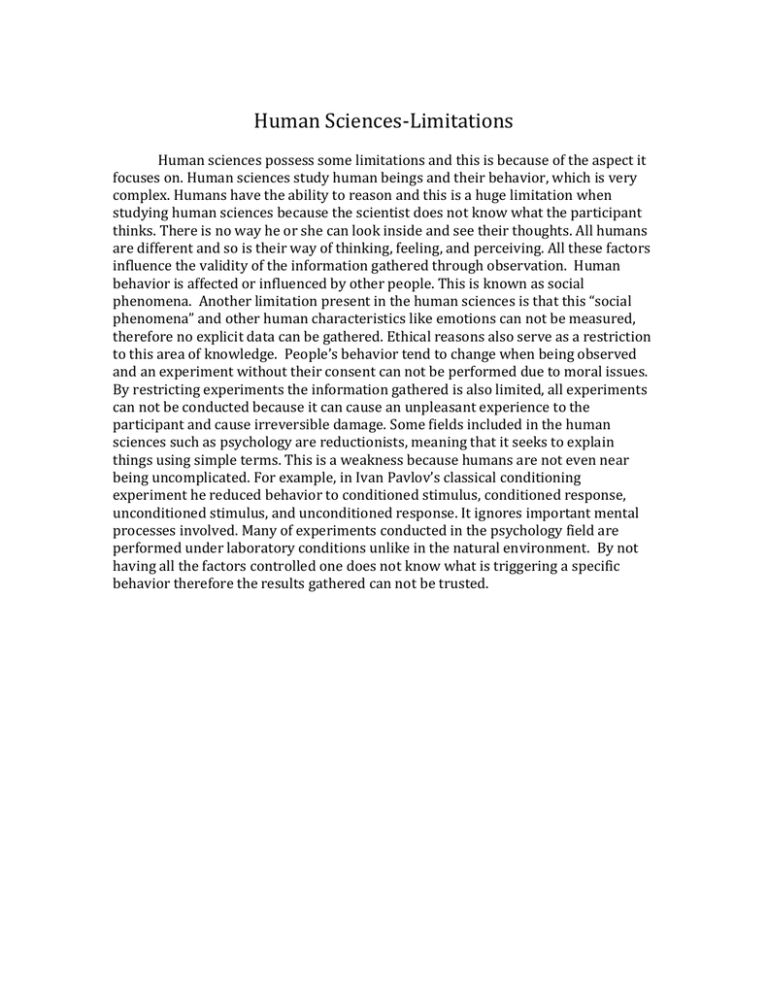
Human Sciences-Limitations Human sciences possess some limitations and this is because of the aspect it focuses on. Human sciences study human beings and their behavior, which is very complex. Humans have the ability to reason and this is a huge limitation when studying human sciences because the scientist does not know what the participant thinks. There is no way he or she can look inside and see their thoughts. All humans are different and so is their way of thinking, feeling, and perceiving. All these factors influence the validity of the information gathered through observation. Human behavior is affected or influenced by other people. This is known as social phenomena. Another limitation present in the human sciences is that this “social phenomena” and other human characteristics like emotions can not be measured, therefore no explicit data can be gathered. Ethical reasons also serve as a restriction to this area of knowledge. People’s behavior tend to change when being observed and an experiment without their consent can not be performed due to moral issues. By restricting experiments the information gathered is also limited, all experiments can not be conducted because it can cause an unpleasant experience to the participant and cause irreversible damage. Some fields included in the human sciences such as psychology are reductionists, meaning that it seeks to explain things using simple terms. This is a weakness because humans are not even near being uncomplicated. For example, in Ivan Pavlov’s classical conditioning experiment he reduced behavior to conditioned stimulus, conditioned response, unconditioned stimulus, and unconditioned response. It ignores important mental processes involved. Many of experiments conducted in the psychology field are performed under laboratory conditions unlike in the natural environment. By not having all the factors controlled one does not know what is triggering a specific behavior therefore the results gathered can not be trusted.

